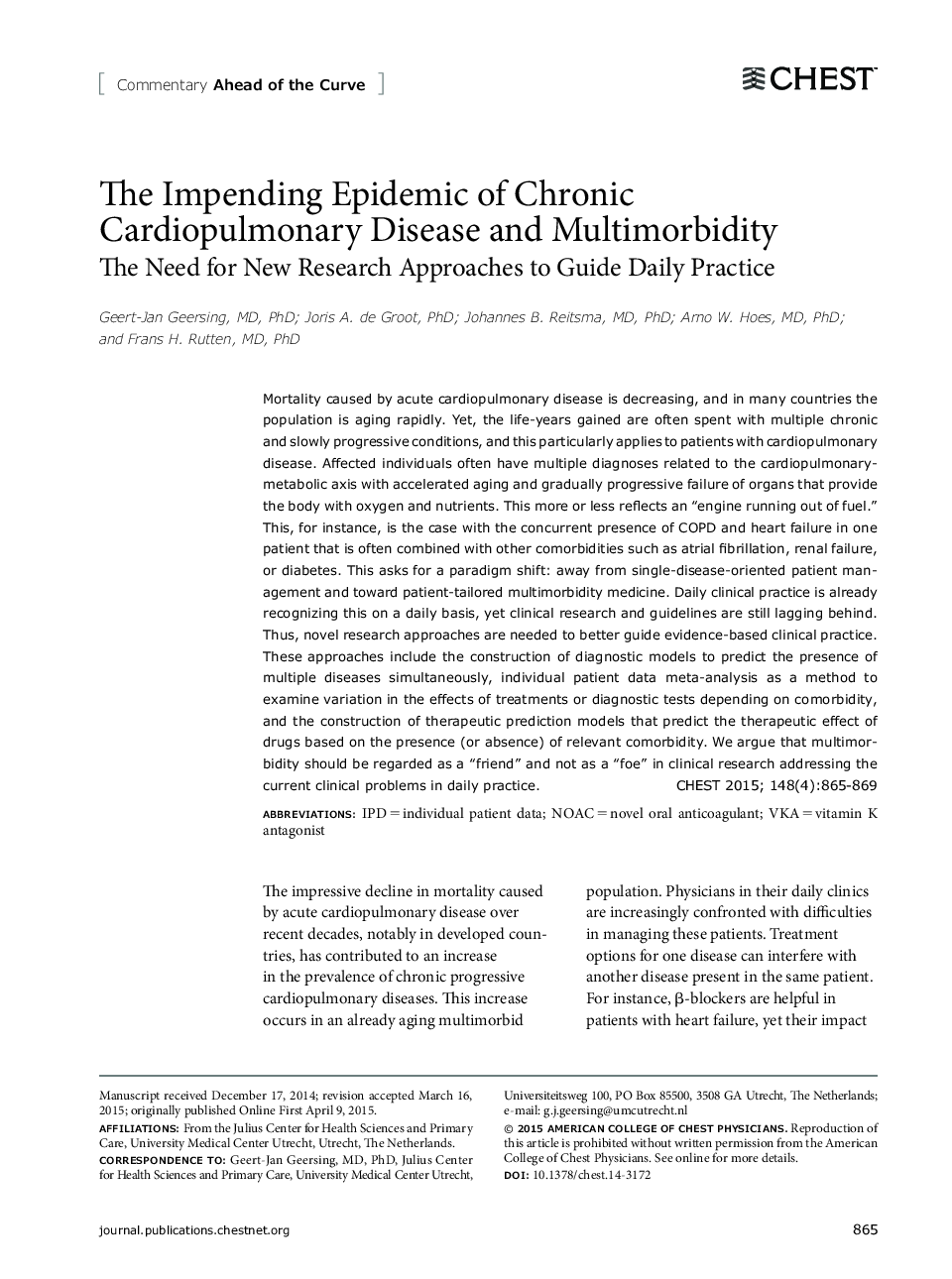| Article ID | Journal | Published Year | Pages | File Type |
|---|---|---|---|---|
| 5953651 | Chest | 2015 | 5 Pages |
Mortality caused by acute cardiopulmonary disease is decreasing, and in many countries the population is aging rapidly. Yet, the life-years gained are often spent with multiple chronic and slowly progressive conditions, and this particularly applies to patients with cardiopulmonary disease. Affected individuals often have multiple diagnoses related to the cardiopulmonary-metabolic axis with accelerated aging and gradually progressive failure of organs that provide the body with oxygen and nutrients. This more or less reflects an “engine running out of fuel.” This, for instance, is the case with the concurrent presence of COPD and heart failure in one patient that is often combined with other comorbidities such as atrial fibrillation, renal failure, or diabetes. This asks for a paradigm shift: away from single-disease-oriented patient management and toward patient-tailored multimorbidity medicine. Daily clinical practice is already recognizing this on a daily basis, yet clinical research and guidelines are still lagging behind. Thus, novel research approaches are needed to better guide evidence-based clinical practice. These approaches include the construction of diagnostic models to predict the presence of multiple diseases simultaneously, individual patient data meta-analysis as a method to examine variation in the effects of treatments or diagnostic tests depending on comorbidity, and the construction of therapeutic prediction models that predict the therapeutic effect of drugs based on the presence (or absence) of relevant comorbidity. We argue that multimorbidity should be regarded as a “friend” and not as a “foe” in clinical research addressing the current clinical problems in daily practice.
